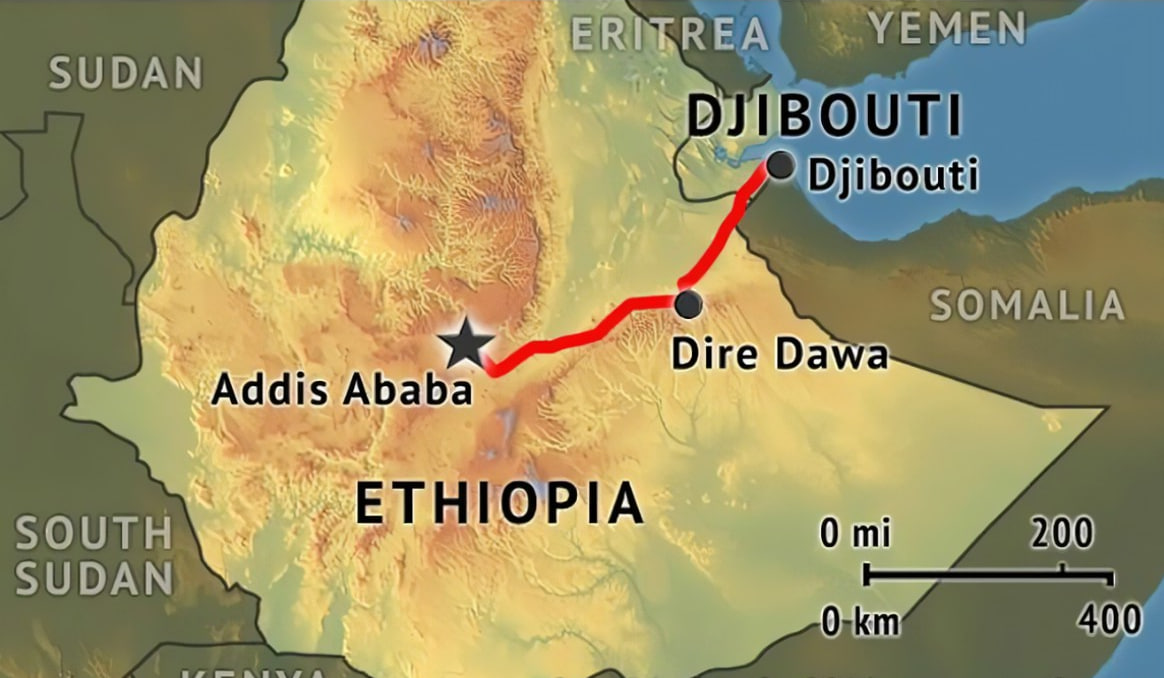
12
Aug
Tracks of Integration: Ethiopia’s Railways and the Politics of Transnational Connectivity
Railway infrastructure has re-emerged as a focal point in Ethiopia’s contemporary development discourse. Last week marked the 130th anniversary of the inauguration of the Ethiopian–Djibouti Railway, a seminal project in the nation’s modern history. H. E. Temesgen Tiruneh aptly characterized the railway as “a transformative project that connected Ethiopia to the world and laid the foundation for our journey toward modernization.” The Minister of Transport lauded the 752-kilometer electrified line as a concrete manifestation of effective transnational collaboration.
In economic terms, the Ethio–Djibouti railway generated 7 billion birr in revenue in the current fiscal year – constituting approximately half of Ethiopia’s total transport sector earnings. Concurrently, Ethiopia is engaged in discussions with the People’s Republic of China to undertake significant infrastructural upgrades to the line. The envisaged works encompass the construction of additional bridges, security fencing, livestock overpasses, upgraded stations, and auxiliary facilities, alongside the procurement of new locomotives. Finance Minister Ahmed Shide disclosed these proposals during a high-level panel on railway infrastructure and regional integration on 1 August 2025.
Ethiopia’s recent railway sector advancements – including the Addis Ababa Light Rail and the Addis–Djibouti line – form part of a broader industrial modernization strategy, closely aligned with China’s infrastructural engagement on the African continent.
Yet, a critical question arises: has Ethiopia’s contemporary performance in railway development matched the ambitions of its predecessors or the magnitude of international involvement, particularly that of China? A decade ago, the preceding administration envisioned an expansive 5,000-kilometer national railway network, designed to enhance inter-regional connectivity and logistical efficiency. This plan encompassed the Awash–Woldeya and Woldyia–Mekelle corridors, both of which remain under development. Since 2018, however, only the Addis Ababa–Djibouti line has been fully operational. Considering the Prosperity Party’s publicly articulated commitment to regional connectivity and economic integration within the Horn of Africa, current achievements appear modest.
By contrast, Ethiopia has demonstrated greater efficacy in regional electrification initiatives and transboundary water provision. Nevertheless, the relative underdevelopment of rail infrastructure remains a strategic shortcoming – particularly in light of railways’ catalytic role in fostering regional economic integration, trade facilitation, and cooperative governance frameworks.
The principal impediment to rapid expansion is financing. In the contemporary global economy, where geographical distances are compressed through advanced mobility, the absence of comprehensive domestic and cross-border passenger rail services is increasingly untenable. It should not be the norm for Ethiopians to rely on costly air travel between Bahir Dar, Mekelle, or Hawassa. The predominance of infrastructure inherited from colonial-era initiatives underscores this lag: the original Ethio–Djibouti line, financed and constructed with French assistance, has now been refurbished with Chinese capital, yet still links only Ethiopia and Djibouti. Both Ethiopians and their neighbors warrant a rail network capable of underpinning durable economic, scholarly, cultural, and political exchange.
Economic infrastructure invariably entails geopolitical consequences. Thus, Ethiopia’s strategic posture in the Horn of Africa must be reinforced not solely through maritime access but also through the establishment of robust transnational rail corridors. Prioritizing port–hinterland connectivity is a rational starting point. Notably, discussions have emerged around linking Berbera Port to the Djibouti railway network. This “port-to-port” corridor would span 310 kilometers – 60 within Ethiopian territory and 250 in Somaliland – implemented via a public–private partnership (PPP) framework. The project is particularly significant in light of DP World’s extensive investments in Berbera Port, which offers a viable alternative gateway for Ethiopia’s southeastern and southern regions.
In summary, domestic air travel as the primary mode of intercity connectivity is ill-suited to Ethiopia’s socio-economic realities. Railways, by contrast, are not only environmentally sustainable but also economically inclusive. While capital mobilization for such projects remains challenging, Ethiopia’s own precedent – the financing of the Grand Ethiopian Renaissance Dam – demonstrates the feasibility of harnessing national solidarity for strategic infrastructure. A coherent regulatory and policy framework for rail operations, combined with the selective liberalization of ownership structures, could further accelerate development.
Although all states and regions benefiting from enhanced connectivity should contribute financially, Ethiopia’s geographic centrality and political weight within the Horn oblige it to assume a disproportionate share of the investment burden. As one of the world’s oldest civilizations, Ethiopia ought already to possess a rail network seamlessly linking its regions internally and integrating it with its neighbors. Just as Ethiopian Airlines has become a continental symbol of connectivity and excellence, a comprehensive railway system should constitute Ethiopia’s next emblematic achievement in the twenty-first century.
By Markos Haile Feseha(PHD), Researcher, Horn Review
Further Reading
- Capital. 2021. “Railway proposed to Berbera,” April 11. https://capitalethiopia.com/2021/04/11/railway-proposed-to-berbera/
- The African Review of Business and Technology. 2021. “Ethiopia rail project attracts Chinese and Turkish investors.” https://africanreview.com/transport-a-logistics/rail/ethiopia-rail-project-attracts-chinese-turkish-investments#:~:text=AND%20TURKISH%20INVESTORS-,Ethiopia%20rail%20project%20attracts%20Chinese%20and%20Turkish%20investors,03%20JULY%202012,-Ethiopia%20has%20signed.



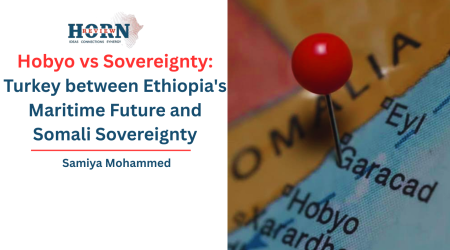
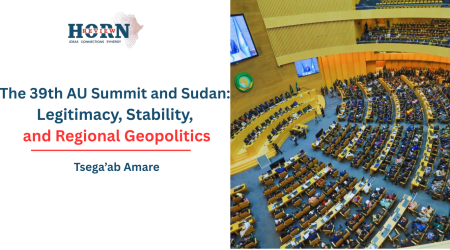

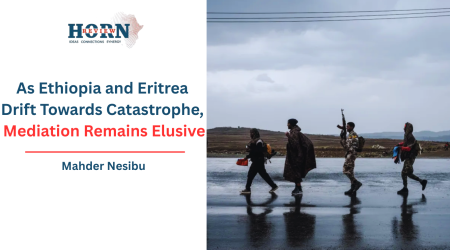
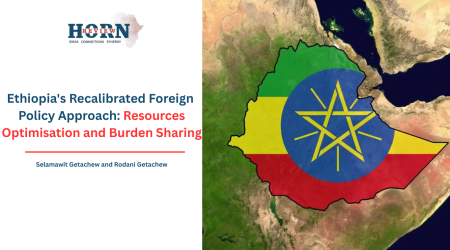
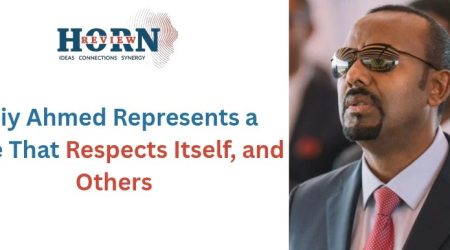
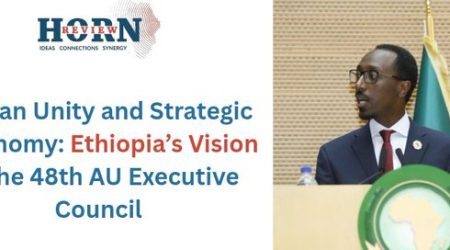
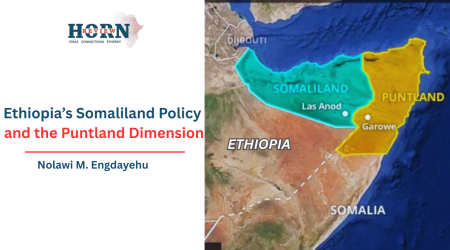
Comment (1)
Hello mates, its enormous piece of writing on the topic of teachingand completely defined, keep it up all the time.